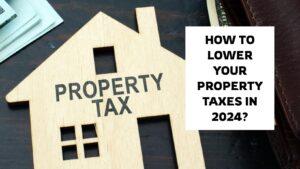Buying a beach house is a fantasy for many, conjuring images of sandy toes and crashing waves. But some take that dream a step further, envisioning a steady stream of rental income rolling in to offset the costs of ownership, or even turn a profit. Renting out a beach house on platforms like Airbnb and VRBO can be a lucrative strategy, but not all beach towns are created equal.
This article dives into the world of short-term rental (STR) investment in coastal areas. We'll explore the concept of yield, a key metric that helps real estate investors compare potential returns to property value. We'll also delve into the regulations that can make or break an STR investment. While a high yield might initially point towards a specific location, strict local ordinances can make owning a rental property there complicated or even impossible.
Realtor.com, a leading online real estate marketplace, has partnered with AirDNA, a data company focused on the vacation rental industry. Together, they've analyzed coastal towns across the US, comparing average annual rental income to median listing prices on Realtor.com. This data allows us to calculate the expected yield for each location.
However, yield is just one piece of the puzzle. Before diving headfirst into a beach town with a seemingly high return on investment, it's crucial to understand the local STR regulations.
Top 10 Beach Towns for Short-Term Rental Investment
Realtor.com and AirDNA have crunched the numbers to identify the top 10 coastal destinations for lucrative short-term rental (STR) investment opportunities. Here's a breakdown of the top 5 contenders, with the remaining 5 locations revealed in part 3. We'll explore each town's median home price, average annual rental revenue, and expected yield, along with a note on any STR regulations you should be aware of before diving in.
1. Pawleys Island, South Carolina
Pawleys Island boasts picturesque coastlines steeped in history, making it a popular vacation spot. The allure translates to solid potential rental income. However, potential investors should be mindful of possible changes to the local STR landscape. The City Council is considering implementing limitations, including capping the number of available STR permits and imposing annual fees.
- Median home price: $497,237
- Annual revenue potential: $41,995
- Expected yield: 19.8%
- STR regulations: Potential changes coming soon, including a cap on permits and annual fees.
2. Michigan East Coast, Michigan
Michigan's sunrise coast offers a range of attractions that bring tourists flocking to towns like Au Gres year-round. This translates to potential for healthy rental income for investors. There are currently no statewide regulations on short-term rentals in Michigan. However, a recent House Bill might empower municipalities to enact their own local STR ordinances.
- Median home price: $208,513
- Annual revenue potential: $20,265
- Expected yield: 16.7%
- STR regulations: No statewide regulations, but local ordinances might be coming soon.
3. Cape San Blas, Florida
This Gulf County town offers attractive returns on investment for beach house purchases. However, Florida imposes a 5% Bed Tax on overnight stays, and Gulf County requires annual STR business licenses and yearly home inspections for rental properties.
- Median home price: $798,807
- Annual revenue potential: $64,264
- Expected yield: 12.8%
- STR regulations: 5% Bed Tax, annual business licenses, and yearly home inspections required.
4. Gulfport Biloxi, Mississippi
The Magnolia State's booming short-term rental industry has prompted the creation of targeted regulations. In Gulfport, for example, strict safety regulations, notification protocols, and minimum insurance requirements are in place for STRs. Be sure to familiarize yourself with these rules before investing.
- Median home price: $303,930
- Annual revenue potential: $23,646
- Expected yield: 12.4%STR regulations: Strict safety regulations, notification protocols, and minimum insurance requirements.
5. Wilmington, Delaware
Wilmington has simplified the process for establishing an STR business on its coast. The city implements a “one and done” policy, meaning once a property obtains the necessary zoning approvals, the designation remains even if ownership changes. This can make existing STR properties more appealing to potential buyers.
- Median home price: $614,856
- Annual revenue potential: $35,361
- Expected yield: 11.2%
- STR regulations: “One and done” policy simplifies permitting process.
6. Lincoln City/Newport, Oregon
Lincoln City enforces regulations that potential STR owners need to navigate before obtaining approval. Additionally, the city has a limited number of STR licenses currently in use, with no new ones being issued until existing properties revert to owner-occupied status. While patience might be required, this could also mean less competition in the rental market. However, this limitation only applies to rentals lasting 30 days or less, so homeowners can still earn income from longer-term stays.
- Median home price: $597,379
- Annual revenue potential: $43,241
- Expected yield: 11.10%
- STR regulations: Limited number of licenses, permitting process required, but longer-term rentals are allowed.
7. Greys Harbor, Washington
Greys Harbor boasts stunning beaches that attract a surge of visitors during warmer months. STR regulations vary depending on the specific municipality where your property is located. Generally, you'll need to apply for and renew an STR permit annually.
- Median home price: $421,627
- Annual revenue potential: $29,331
- Expected yield: 11%
- STR regulations: Permit required, regulations vary by municipality.
8. Outer Banks, North Carolina
The Outer Banks is a collection of barrier islands, each with its own set of regulations regarding short-term rentals. Nags Head, for instance, differentiates between whole-house and partial-house rentals, requiring different permits depending on the intended use. Thorough research is crucial before investing in any of these charming coastal towns.
- Median home price: $705,939
- Annual revenue potential: $34,237
- Expected yield: 10.5%
- STR regulations: Regulations vary by town, requiring research before investing.
9. Corpus Christi, Texas
Corpus Christi defines short-term rentals as properties rented out for less than 30 days and requires a registration permit before listing your space. However, Padre/Mustang Island areas seem to have a more relaxed approach to STR regulations, which might be appealing to some investors.
- Median home price: $541,169
- Annual revenue potential: $27,154
- Expected yield: 10.4%
- STR regulations: Registration permit required, some areas have more relaxed rules.
10. Gulf Shores, Alabama
Gulf Shores considers any rental lasting less than 180 days a short-term rental. Be aware of lodging tax requirements, which include a breakdown between state, county, and city taxes depending on the property's location.
- Median home price: $615,535
- Annual revenue potential: $112,281
- Expected yield: 10.3%
- STR regulations: Lodging tax applies, tax amount varies by location.
Factors to Consider Before You Invest in Short-Term Rentals
While above data provides valuable insights, there's more to consider before buying a beach house for short-term rentals than just yield and regulations. Here are some additional factors to weigh before making a final decision:
1. Market Saturation and Seasonality:
A high yield might be enticing, but factor in competition. How many existing STRs are there in the area? Is the rental market already saturated, or is there room for your property to stand out? Additionally, consider seasonality. While some coastal towns thrive year-round, others experience significant fluctuations in tourist traffic. Ensure your rental income aligns with your investment goals and mortgage payments, even during off-peak seasons.
2. Target Audience and Property Management:
Who are your ideal renters? Families with young children might have different needs than couples seeking a romantic getaway. Understanding your target audience will help you tailor your property's amenities and pricing strategy. Consider the management aspect as well. Will you manage the rentals yourself, or hire a property management company? Factor in the associated costs when calculating your projected returns.
3. Maintenance and Upkeep:
Beach houses are exposed to the harsh elements – sand, salt, and potentially strong winds. Be prepared for ongoing maintenance costs, which can be higher than those associated with traditional rentals. Factor in potential repairs, replacements of furniture and appliances, and regular cleaning services.
4. Local Amenities and Community:
What amenities are nearby? Easy access to restaurants, attractions, and shopping can significantly enhance your property's appeal to renters. Consider the overall vibe of the community. A peaceful, family-friendly atmosphere might be ideal for some investors, while others might prefer a location with a more vibrant nightlife scene.
5. Personal Use and Exit Strategy:
Will you want to use the beach house yourself for vacations or family getaways? Factor in personal use when considering potential rental income. Additionally, think about your long-term plans. How will you eventually exit this investment? Selling a property in a saturated STR market might be more challenging than anticipated.
Final Thoughts:
Investing in a beach house for short-term rentals can be a rewarding experience, offering the potential for financial gain and the chance to own a piece of paradise. However, remember that it's not a get-rich-quick scheme. By carefully considering the factors outlined above, alongside the data provided by Realtor.com and AirDNA, you can make an informed decision that aligns with your financial goals and risk tolerance.
ALSO READ:










